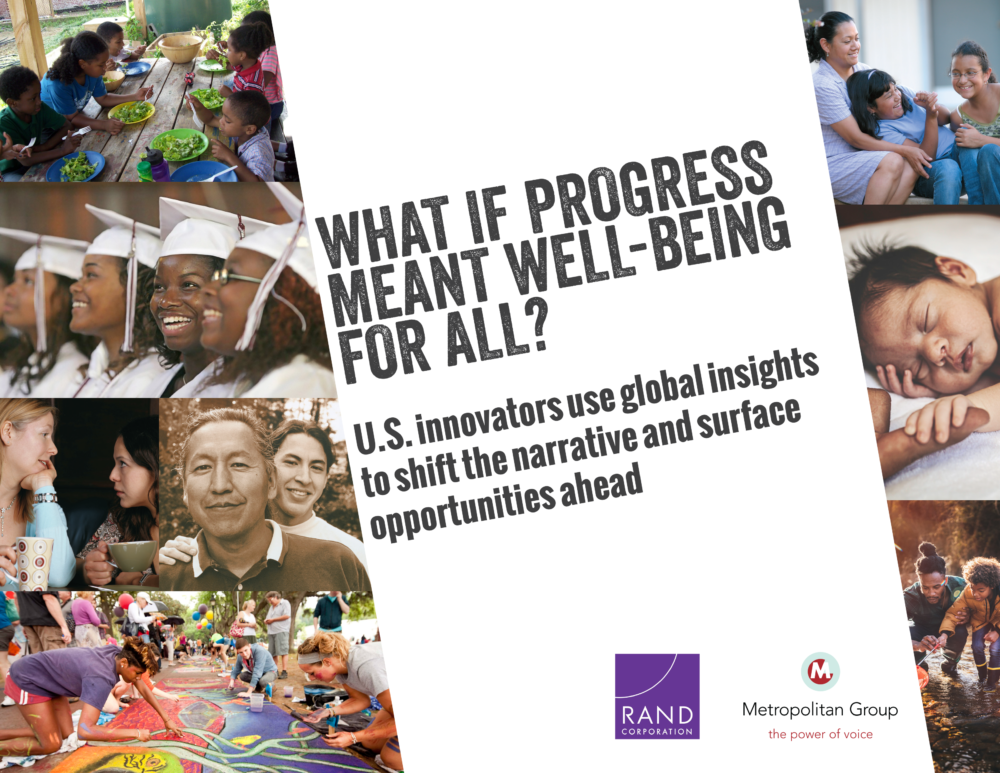
Kiernan Doherty
executive vice president
U.S. innovators use global insights to shift the narrative and surface opportunities ahead
A pervasive narrative that progress equals economic growth alone protects a status quo that can be connected to despair, social challenges and environmental problems. A new narrative centered in well-being—the conditions required for every person to thrive and create a meaningful future—could lead to fundamentally different decisions.
Narratives, collections of stories and experiences gathered over time, shape the way we make sense of the world and strongly influence our mindsets and actions. One of the most persistent narratives in the United States and other countries is that progress is defined solely by economic growth, a narrow view that can drive short-sighted decisions. Those decisions can exacerbate inequities and when other dimensions of human and community welfare are missed, accelerate threats to human and environmental health.
What if, instead, our narrative were that well-being—physical, emotional, social, financial, planetary, with a strong core in racial justice—was the ultimate goal and the definition of progress? Our shared idea of “the way things are” would fundamentally change, transforming people’s mindsets and leading to actions, policies and funding that prioritize flourishing, equity and connection.
As other countries start to broaden their definition of progress to center on well-being, we set out to learn how narratives have played a role. MG and the RAND Corporation, supported by a grant to RAND from the Robert Wood Johnson Foundation, gathered and shared global narratives about progress with six innovators in the United States. That group applied the global insights in their own work, leading to a provocative set of ideas and opportunities that can inspire and inform the work of change makers, city leaders, impact investors, economists, storytellers and others interested in resetting the narrative about what matters most.
The RAND Corporation and Metropolitan Group teams co-developed this resource, which is posted on www.metgroup.com and linked to www.rand.org. This exploratory narrative report is intended to stimulate discussion and further research on how narratives are playing a role in helping decision-makers broaden their definition of progress to center on well-being, and to solicit informal feedback from peers. The report has been approved for circulation by RAND Social and Economic Well-being. It has been formally edited by Metropolitan Group, but it has not been peer reviewed to ensure it meets RAND’s standards. This exploratory report may be quoted and cited without permission, provided the source is clearly referred to as an “exploratory report.” This report does not necessarily reflect the opinions of RAND’s research clients and sponsors. Supported by a Robert Wood Johnson Foundation grant to RAND, the views expressed here do not necessarily reflect the views of the Foundation.

